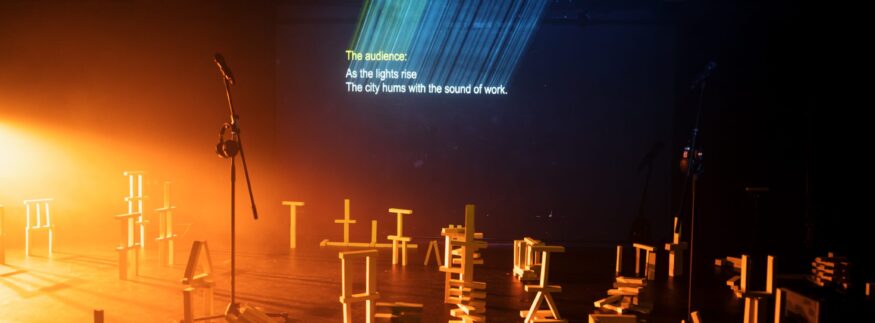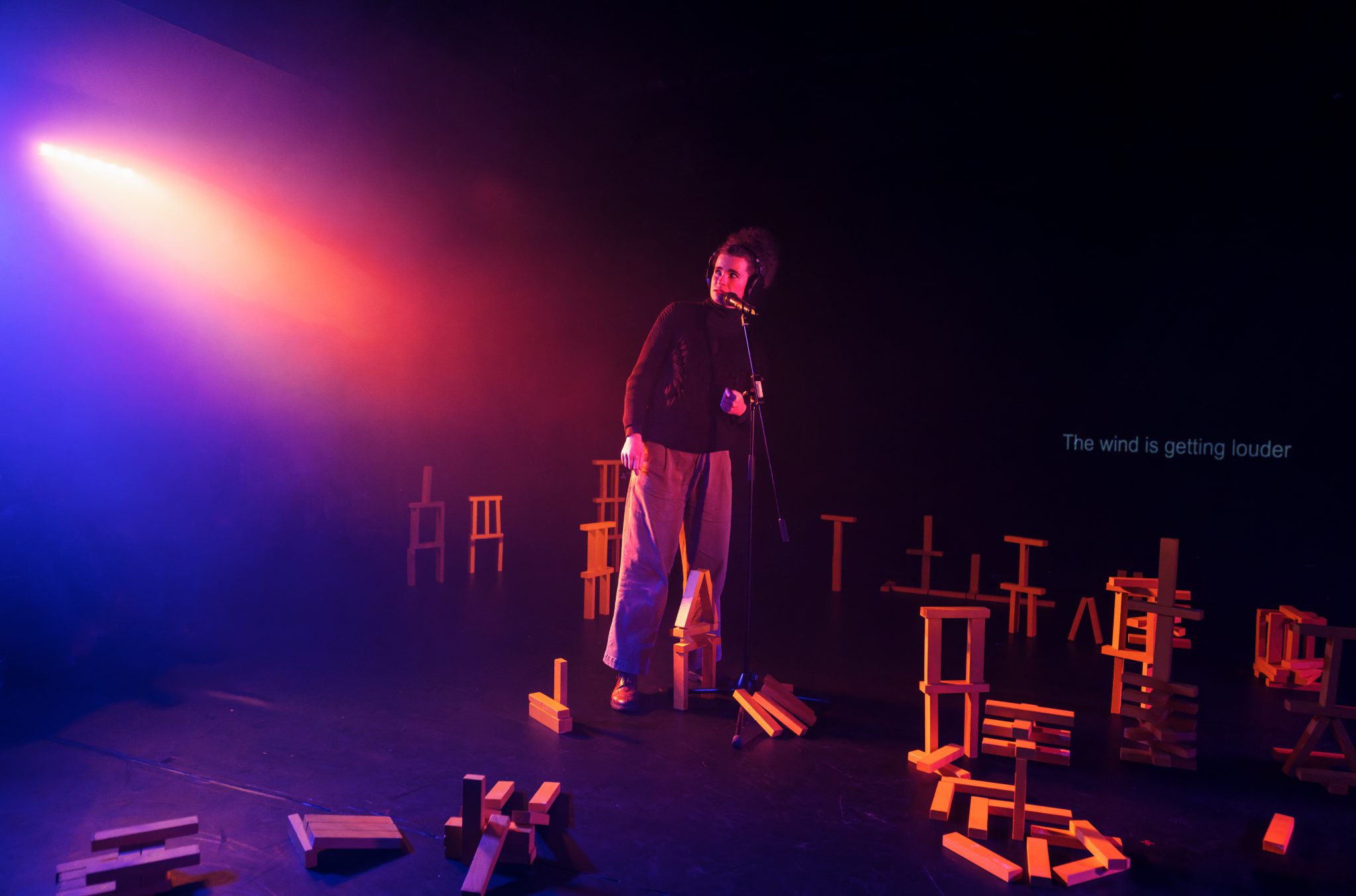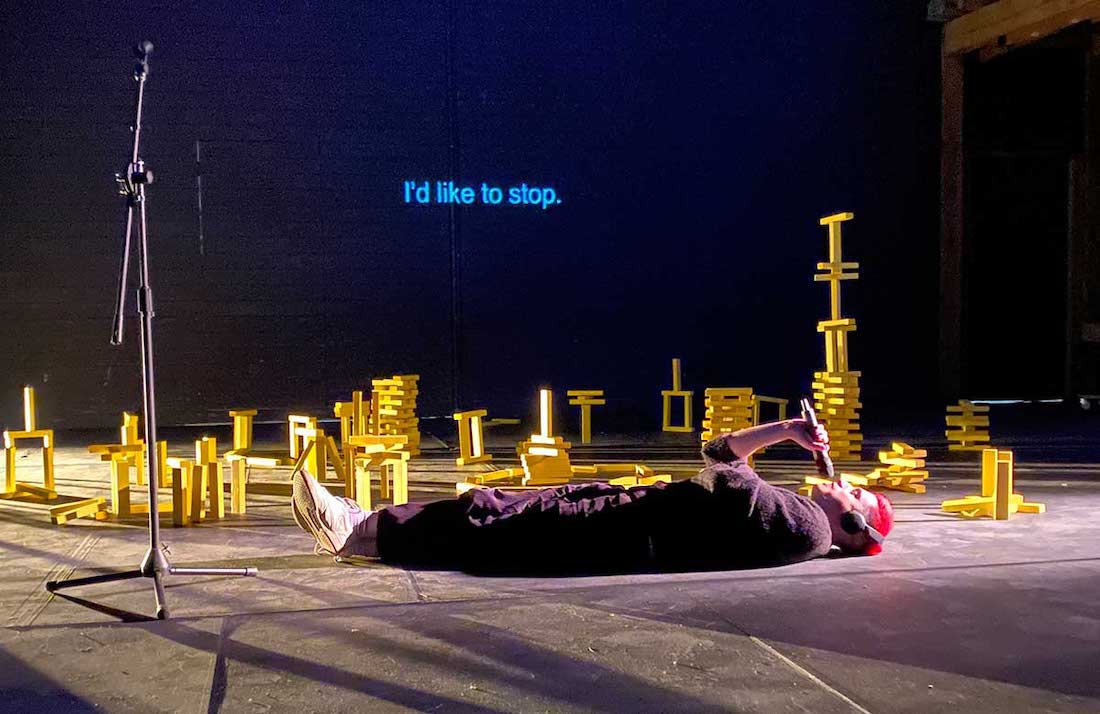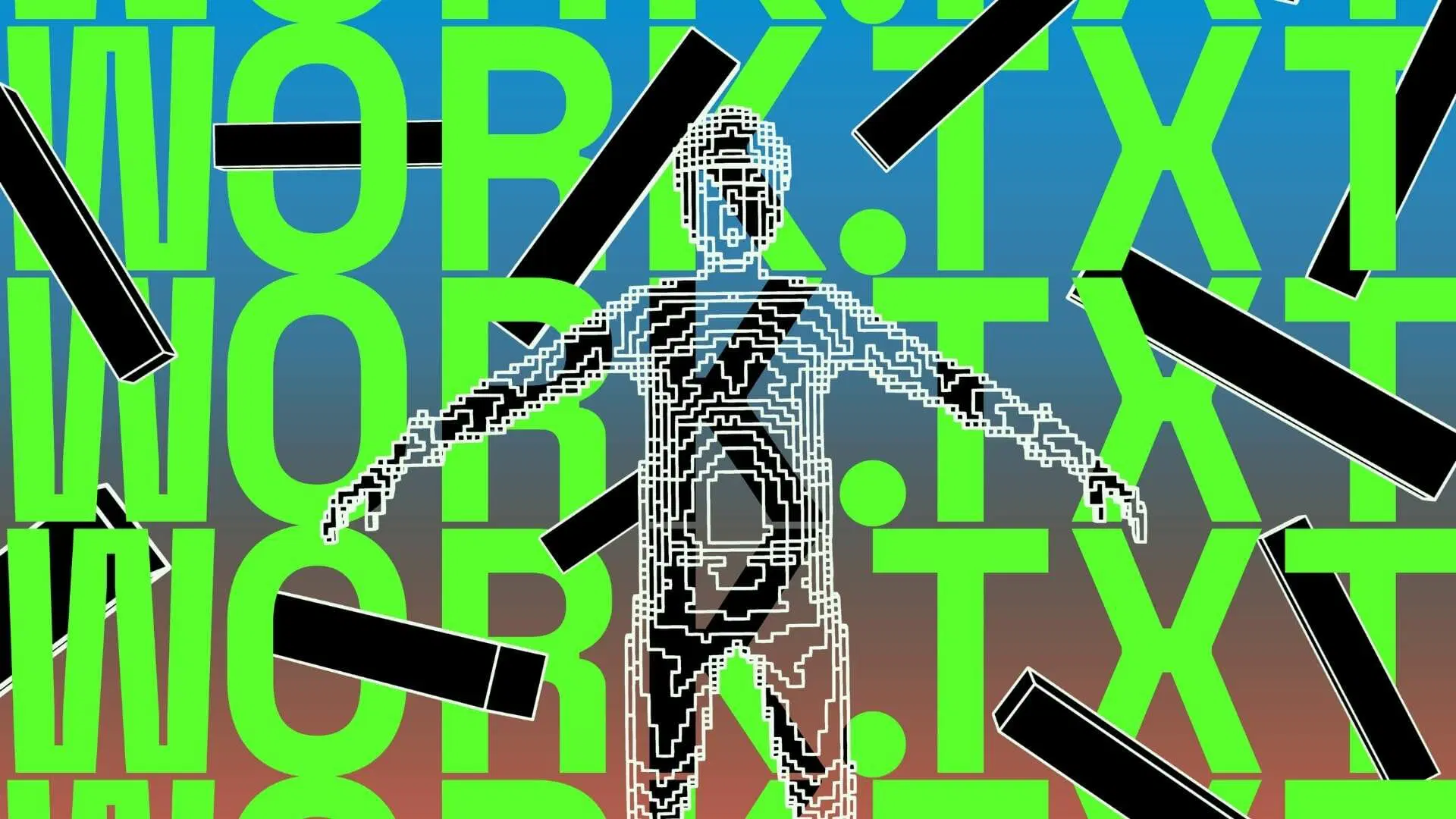Work.txt: When the Audience Becomes the Cast
D-CAF Interactive Live Performance plays theatre
Aya Elgohary
Image via The Skinny
An empty stage. Wooden sticks on the floor. A printer in the corner. Two mics on stands, conspicuously unattended. That’s how the scene looked when we first entered Rawabet Art Space’s theatre.
Never in our lives had we thought that a play without a cast was even possible. We did not really have many expectations when we read “a play without actors” in the description. Before we could fully comprehend it, we found ourselves on stage, acting out a script that had come out of the printer during the middle of the show, a script we had never seen before.

Image via The Theatre Centre
Since the moment the play started, the audience — which is also the cast — displayed remarkable enthusiasm throughout the show. During the two hours of the play, we did not experience so much as a single dull moment. The play was extremely well-grounded in Egyptian culture and its work environment. Surprisingly, the play turned out to be translated into Arabic from English. Ahmed Iman Zakareya, the translator, did an excellent job with the cultural adaptation during the translation process.
Work.txt book cover via Theatre Weekly
Nathan Ellis, the writer and director of the play, said in a discussion that followed that he had never seen such an excited audience as the one in Egypt in the over 100 times the play was showcased around the world.
Ellis told Cairo 360 it was his first time showcasing his play to an Arab or African country. He was amazed that the audience was very easygoing and even started improvising on their own.
Ellis’s play Work.txt, which revolved around themes of capitalism and the work environment, allowed us to immerse ourselves in the very essence of these themes. It offered a thought-provoking experience, making us keenly aware of the dynamics of capitalism and the daily struggles within work environments. The play’s ability to evoke such raw emotions in the audience was a testament to its powerful storytelling, even without a cast.

Image via The Stage
What made Work.txt even more captivating was its open-ended nature, leaving room for interpretation and reflection. As the narrative unfolded, it encouraged us to engage with the subject matter on a personal level, fostering discussion and introspection. The play’s ability to prompt different interpretations and perspectives added depth to the overall experience, making it a dynamic and intellectually stimulating theatrical encounter.
This encounter with participatory theatre in Work.txt marked our first exposure to a form of theatrical engagement that breaks down the boundaries between the audience and the stage.
This experience demonstrated that in the world of theatre, there are no strict boundaries, only a vibrant and ever-evolving landscape of possibilities waiting to be explored.
recommended
 Cafés
Cafés
Bite Into the Croffle Craze: The Best 5 Spots to Try Croffles in Cairo
cafes cairo +2 City Life
City Life




